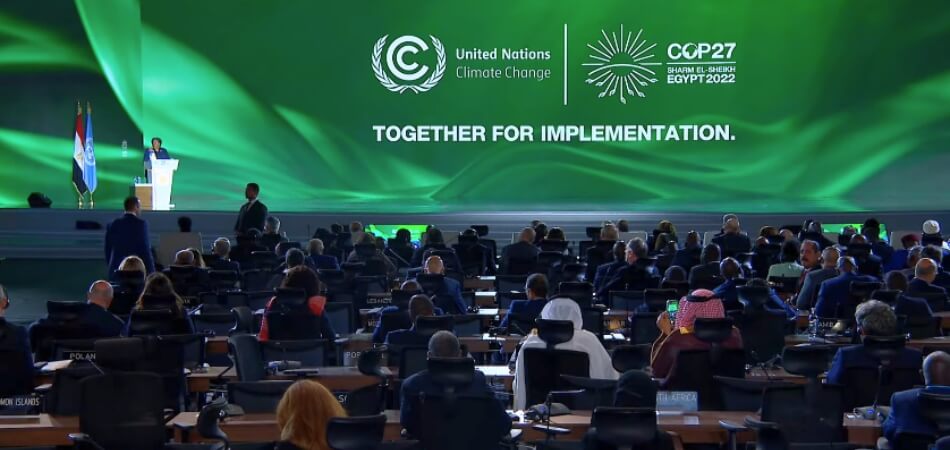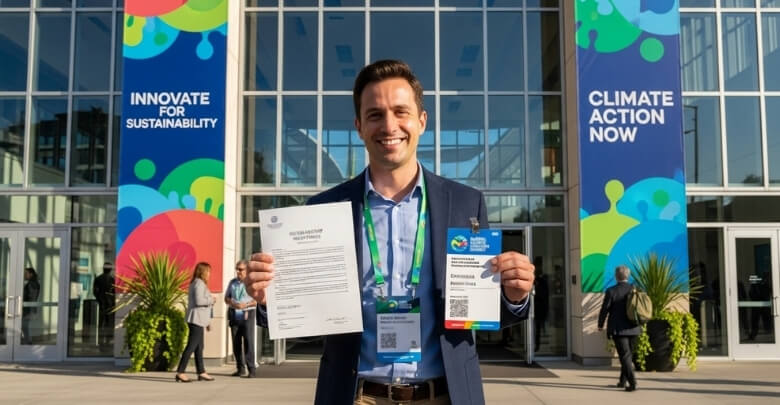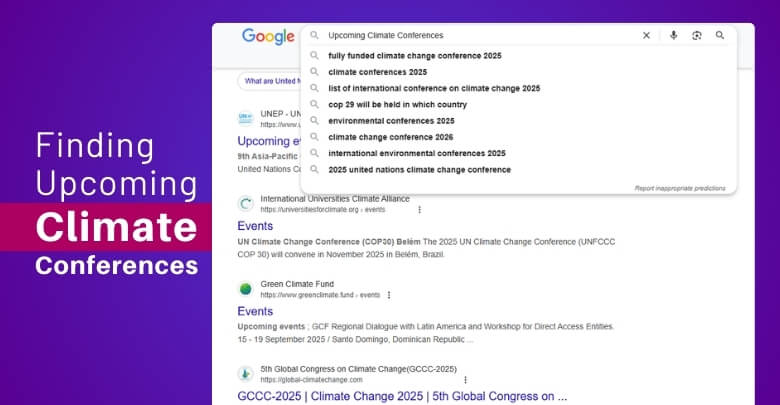Climate change conferences bring people together from around the world every year to talk about how to protect the planet. These events are packed with smart ideas, global issues, and serious discussions. If you’re thinking about going, there’s probably one question on your mind—how much does it cost to attend climate change conference?
The total cost to attend a climate change conference is usually between $1,500 and $4,500. This includes registration fees, flight tickets, hotel stay, food, local transport, and other extra expenses. The actual amount depends on where you’re coming from, how early you book, and the spending choices you make during your trip.
Want to know what each of these costs really looks like? Or curious about how to plan your budget the smart way? Then keep reading, because this article explains everything you need to know before attending a climate change conference.
How Much Does it Cost to Attend Climate Change Conference?
Thinking about going to a climate change conference? These events bring together experts, policymakers, activists, and business leaders to talk about solutions and challenges related to our planet. But before you book your spot, it’s important to know the costs. The total expense depends on where the event is held, how long it lasts, and the choices you make along the way. Let’s break it down so you know what to plan for:
Registration Fees
The first cost is registration. Standard tickets for climate change events, such as an international environmental policy conference, usually cost between $400 and $1,200. You can save money if you register early. Some events also give discounts for students, NGOs, or groups. VIP tickets with extra access to sessions or networking dinners may go up to $1,500 or more. Always check what the ticket covers, like meals or materials.
Flight Tickets
If you need to travel, airfare will likely be one of your biggest costs. A round-trip ticket can range from $500 to $1,200 depending on the country you are flying from, the season, and how early you book. Flights get more expensive during peak travel months, so planning ahead makes a big difference. Using flight comparison websites, setting alerts, or looking for airline deals can help keep this cost lower.
Hotel Stay
Accommodation costs depend on the host city. If the event is in cities like New York, London, or Paris, hotels can cost $120 to $300 per night. For a four or five-day conference, this can add up quickly. Budget hotels, short-term rentals, or shared rooms can reduce costs. Sometimes, the organizers partner with hotels to offer discounted rates for attendees, so check the official event website before booking.
Food and Meals
While many conferences include coffee, snacks, or lunch, you’ll still need to cover other meals. On average, daily food costs may range from $30 to $80. Choosing hotels with free breakfast, eating at casual restaurants, or buying groceries can help you save. If your accommodation has a kitchenette, cooking simple meals is also a money-saving option.
Local Travel
Moving around the city is another expense. Rideshare apps, taxis, or public transport will cost around $10 to $40 per day. Some big cities have excellent subway or bus systems that are both cheap and fast. If your hotel is near the venue, walking can save money and time. Sometimes, event organizers provide shuttle buses from partner hotels to the conference center, which is worth checking out.
Extra Costs
Don’t forget about extra spending. You may want to join evening networking events, go sightseeing, or buy souvenirs. These extras can cost anywhere from $50 to $200 or more. It’s a good idea to keep some emergency money aside for unexpected costs.
Total Cost
When you add everything up (registration, flights, accommodation, meals, transport, and extras), attending a climate change conference usually costs between $1,500 and $4,500. The exact amount depends on your location, how early you plan, and the spending choices you make. Registration and hotel costs are normally the biggest part of the budget. With smart planning, early booking, and cost-saving choices, you can make the experience more affordable.
What Is Included in the Climate Change Conference Ticket Price?
Buying a ticket for a climate change conference gives you more than just entry to the event. Organizers often include added benefits to make the experience valuable and worth the price. While details vary, here are the common things usually provided:
| Included Item | Details |
| General Admission | Access to main sessions, keynote speeches, and panel discussions. |
| Workshops or Breakout Sessions | Some tickets cover small group sessions on specific topics. |
| Networking Opportunities | Chances to meet experts, policymakers, and fellow attendees during scheduled networking hours. |
| Exhibit Hall Access | Entry to booths from organizations, NGOs, and green tech companies showcasing projects and solutions. |
| Conference Materials | Printed programs, brochures, or digital resources like slides and reports. |
| Meals and Refreshments | Many events include coffee breaks, snacks, and sometimes lunch. |
| Online Access | Some tickets include live-streaming or recorded sessions for later viewing. |
| Certificates or Badges | Proof of participation, often useful for professional recognition or educational purposes. |
Keep in mind that what’s included in the ticket price can vary from one climate change conference to another. Some offer more extras, while others keep it basic. Always check the event details before registering so you know exactly what you’re paying for. Click the button below for a detailed list of what is typically in the climate change conference ticket:
Is It Worth Paying More for VIP or All-access Passes?
Yes, for many people, VIP or all-access passes can make the event experience much better. These tickets often give you extra benefits that regular passes don’t include. The added features can save time, give comfort, and create more chances to connect with people. Since they cost more, you’ll want to see if the perks are valuable for you. Read below to find out the main benefits of VIP or all-access passes.
Priority Seating
VIP passes often give you front-row or reserved seating at big sessions. This means you don’t have to rush early to get a good spot. Sitting closer also makes it easier to see and hear everything clearly. If you want comfort and less stress about seating, this is a big plus.
Extra Workshops
With all-access passes, you might get entry to exclusive workshops. These smaller sessions let you learn in more detail about specific topics. Fewer people attend, so you can ask questions and get clearer answers. This can give you a deeper learning experience than the main talks.
Special Networking
VIP tickets often include private networking sessions. These are smaller gatherings where you meet speakers, experts, and industry leaders directly. Talking in a smaller group can help you build stronger connections. If networking is your goal, this benefit is worth it.
Better Hospitality
Some VIP or all-access tickets include extra perks like free meals, special lounges, or faster check-in. This makes the whole event smoother and more enjoyable. You can save time waiting in long lines and relax between sessions. These small comforts can make a big difference in your day.
Exclusive Materials
Sometimes, higher-level passes give you extra materials like detailed reports, recordings, or special guides. Having these resources lets you revisit what you learned later. They can also be useful if you want to share insights with others. Regular tickets may not always include these extras.
Evening Events
VIP passes often come with entry to private dinners, receptions, or evening talks. These events are usually not open to everyone. They give you more chances to meet people and enjoy the social side of the conference. For some, this is the highlight of the event.
All-access passes, on the other hand, provide a broader range of extras that can add real value if they align with your goals. The decision comes down to whether those added benefits are important for you and fit within your budget.
How Do Virtual Attendance Costs Compare With In-Person Events?
Choosing whether to attend a conference in person or virtually is one of the first decisions made during the planning process. Each option comes with its own costs and benefits. Here’s a side-by-side look to help you compare.
| Point of Comparison | In-Person Event | Virtual Attendance |
| Registration Fees | $300–$1,000 depending on event type | Usually lower, $50–$300 |
| Travel Costs | Flights, trains, or fuel can add $200–$1,200 | No travel needed |
| Hotel Stay | $100–$300 per night | Not required |
| Meals | $30–$70 per day | Not required (eat at home) |
| Local Transport | $10–$30 per day for taxis, buses, or rideshares | Not needed |
| Networking | Face-to-face networking, stronger personal connections | Online chats and breakout rooms, limited interaction |
| Extras and Entertainment | City tours, receptions, or cultural events add $50–$200 | Usually not included |
| Total Cost Range | $1,200–$3,500 | $50–$400 |
Virtual attendance is clearly more budget-friendly, while in-person events bring richer experiences and connections. The right choice depends on your goals, budget, and availability. Always compare both options before deciding how to attend.
Can You Get Sponsored to Attend a Climate Change Conference?
Yes, it’s possible to get sponsored, but it takes some effort and planning. Many groups support people who want to attend these events but can’t afford all the costs. The key is knowing where to look and how to ask. If you’re serious about attending but need help, check below to learn how sponsorship can work and where to start.
Conference Scholarships
Some conferences offer their own scholarships or sponsored passes. These are often for people from low-income countries or those working in climate projects. They may cover ticket fees, travel, or even hotel stays. Always check the official event website for a “scholarship” or “funding support” section.
NGO and Non-Profit Help
Many non-profit groups support climate work and may sponsor people to attend events. If you’ve volunteered with them or are part of their projects, your chances are higher. They often get passes or funding to help their members take part in big events. A short, polite email can open the door. Here is a sample email you can use to ask a non-profit or NGO for sponsorship assistance.
Government Programs
Some governments have programs that support travel to international climate events. These are mostly for people doing climate research or working on green projects. If you are connected to a local government body or program, ask if such help is available. It’s often not well-advertised, so asking directly helps.
University or Workplace Support
If you’re working or studying, your organization might help cover costs. Some offices or schools have travel budgets for learning events. You may need to write a request explaining how the event helps your work. It’s best to ask early, as funding can be limited.
Sponsorship from Companies
Some eco-friendly companies or sponsors help fund people who care about climate work. They often look for people active in the space, especially if you can share what you learn with others. You can send a proposal or short pitch explaining how you’ll use the knowledge. Even partial support helps reduce your total cost. Below is a sample sponsorship proposal to attend a climate change conference.
Online Fundraising
If other options don’t work, some people turn to online fundraising. Platforms like GoFundMe let you tell your story and ask for support from friends, family, or even strangers. You’ll need to share your goal and why it matters. It works best when you explain clearly and keep updates going.
How to Plan Your Budget for a Climate Conference Trip?
Participating in a climate conference can be exciting, but you need to be smart with your money. Without a plan, the costs can sneak up on you and go higher than expected. The best way to avoid this is by budgeting early and clearly. Check out the tips below to help you plan your trip costs step by step.
Set a Total Budget
Start by deciding how much you’re willing to spend on the whole trip. This will help guide every choice you make after that. Without a clear budget, it’s easy to overspend in small ways. Having a total limit keeps things under control. It also helps you choose what’s worth paying for and what’s not.
Registration Fees
Conference tickets can cost anywhere from $400 to $1,200, depending on the event. Some conferences give early-bird prices or discounts if you book early. Others may offer free passes through scholarships or for volunteers. Always check what’s included in the ticket—like meals, workshops, or even sessions that explain the purpose of climate change conference, so you know exactly what you’re paying for.
Flights and Travel
Plane tickets are often the biggest part of your travel budget. The price depends on where you’re flying from and when you book. Try to book your ticket early and use comparison sites to find the best deal. Some budget airlines may be cheaper, but check luggage rules. If the conference is local, using trains or buses might save money too.
Hotel or Stay
Hotels near the venue can be pricey, especially in big cities. You can save money by booking early, sharing a room, or choosing budget hotels. Some people use short-term rental apps for cheaper options. A place with free breakfast or a small kitchen helps reduce food costs as well. If the event offers hotel discounts, use them.
Food and Meals
Most conferences provide lunch and coffee during the day. But you’ll still need money for breakfast, dinner, and snacks. Eating at casual places or local diners is usually cheaper than hotel restaurants. Buying simple groceries also saves money. Plan at least $30–$70 per day for food if it’s not included.
Local Transport
You’ll need to get around once you arrive. Budget for taxis, buses, subways, or rideshare apps like Uber or Lyft. If your hotel is close to the venue, walking might be an option. Some events even offer free shuttle buses. Always check the city’s public transport system before your trip.
Extra Expenses
Don’t forget the small things that add up. This includes things like tips, souvenirs, city tours, or emergency items. You might also want to join paid workshops or social events during the conference. It’s good to set aside an “extra money” amount just in case. Around $100–$200 is usually safe.
Track Everything
Once your plan is ready, write down all your expected costs in one place. Use a notebook or a simple budget app. This helps you see where your money is going and if you’re staying within your limit. Tracking your spending also keeps you prepared for future events. It’s a habit that saves both money and stress.
Tips for Finding Upcoming Climate Conferences and Their Prices
Planning to attend a climate conference can feel confusing if you don’t know where to look. There are many events happening worldwide, and each one has different costs. To make things easier, here are some tips you can follow.
Official Conference Websites
The best place to start is the official website of the event. Organizers usually share full details, including ticket prices and schedules. Early-bird discounts are often posted months in advance. Always check the site to avoid wrong or outdated information.
Global Organizations
Large organizations like the UN, World Bank, or international NGOs regularly host climate events. Their websites list upcoming conferences with price details. Many of these events also offer scholarships or travel support. Keeping track of these organizations can save you time.
Event Platforms
Websites such as Eventbrite or Global Conference Alliance Inc. often list climate conferences. You can search by topic, date, or country. These platforms also allow you to compare prices for different events and find the right international conferences that match your goals. Some even let you set alerts for new listings.
University Announcements
Universities often host or co-host climate conferences. Check the websites of leading schools with environmental programs. They usually post event schedules and registration fees openly. Some even allow external participants at discounted rates.
Social Media Pages
Many conferences advertise on social media platforms like LinkedIn, Twitter, or Facebook. Following climate groups and event organizers keeps you updated. Sometimes special discounts are shared only through these pages. It’s also a good way to see reviews from past attendees.
Email Newsletters
Subscribing to newsletters of climate organizations or event hosts is a smart step. These emails often include updates on new conferences and early ticket offers. Newsletters may also highlight price changes or travel tips. This way, you get the news directly in your inbox.
Word of Mouth
Don’t underestimate personal connections. Talking to colleagues, mentors, or friends involved in climate work can lead to useful tips. They may know about smaller, affordable events that are not widely advertised. Personal recommendations can also help you judge if the cost is worth it.
Frequently Asked Questions
If you’re thinking about attending a climate change conference, you probably have a lot of questions about the costs involved. Besides the usual expenses, there are many small details people often forget to consider. To help you plan better, here are some clear answers to the most common cost-related questions that haven’t already been discussed above.
Do All Climate Conferences Charge the Same Fee?
No, fees vary widely depending on the conference size, location, and organizers. Smaller regional conferences may only charge $100–$300, while larger global events can cost well over $1,000. Always compare prices and check what’s included before registering to avoid surprises.
Are Group Discounts Available for Climate Conferences?
Yes, many conferences offer discounts for groups registering together. This is common for NGOs, universities, or businesses sending multiple participants. The savings can range from 10% to 30%, depending on the event. It’s a good way to reduce overall costs.
How Far in Advance Should You Book for Best Prices?
It’s smart to start planning at least 3–6 months in advance. Flights and hotels are usually cheaper if booked early. Early-bird registration rates also expire months before the event. Waiting until the last minute almost always costs more.
Do All Conferences Provide Visa Support Letters?
Yes, most large international conferences provide official visa invitation letters if you request them. This can help you apply for a travel visa faster. Smaller events may not offer this service. Always ask the organizer directly if you’ll need visa support.
What Should You Pack for a Climate Change Conference?
Packing depends on the location and length of the event. Always bring comfortable clothes for long sessions, business-casual outfits for networking, and a light jacket for colder venues. Don’t forget chargers, notebooks, reusable bottles, and personal essentials. Preparing smartly saves money and stress.
What Kind of People Attend Climate Conferences?
Participants include scientists, policymakers, students, activists, and business leaders. NGOs, government representatives, and private companies also send people. This mix creates a wide range of discussions. Networking with such a diverse group is one of the biggest benefits of attending.
What Do You Gain After Attending a Climate Conference?
You leave with knowledge, new ideas, and contacts that can help your future work. Many attendees apply lessons to local projects, research, or activism. The inspiration from global discussions is often just as valuable as the technical knowledge shared.
Are Climate Entry Fees the Same for Everyone?
Not always. Some events use tiered pricing where early birds, students, or group registrations get lower rates. In conferences such as climate summits, the climate entry fee may be different for general admission, VIP passes, or one-day tickets. It’s good to look at all ticket types before making your choice.
Bottom Line
Attending a global conference on climate change is more than just a trip—it’s an investment in knowledge, connections, and action. The experience is valuable, but the price tag can vary widely.
So, how much does it cost to attend climate change conference? The answer depends on choices like early bookings, where you stay, and how you manage daily spending. With some planning, it’s possible to make the event affordable without losing the experience.
Eventually, whether you attend virtually or in person, the key is budgeting smartly and knowing what to expect. A little preparation ensures you can focus on learning, sharing, and being part of the global conversation that truly matters.









